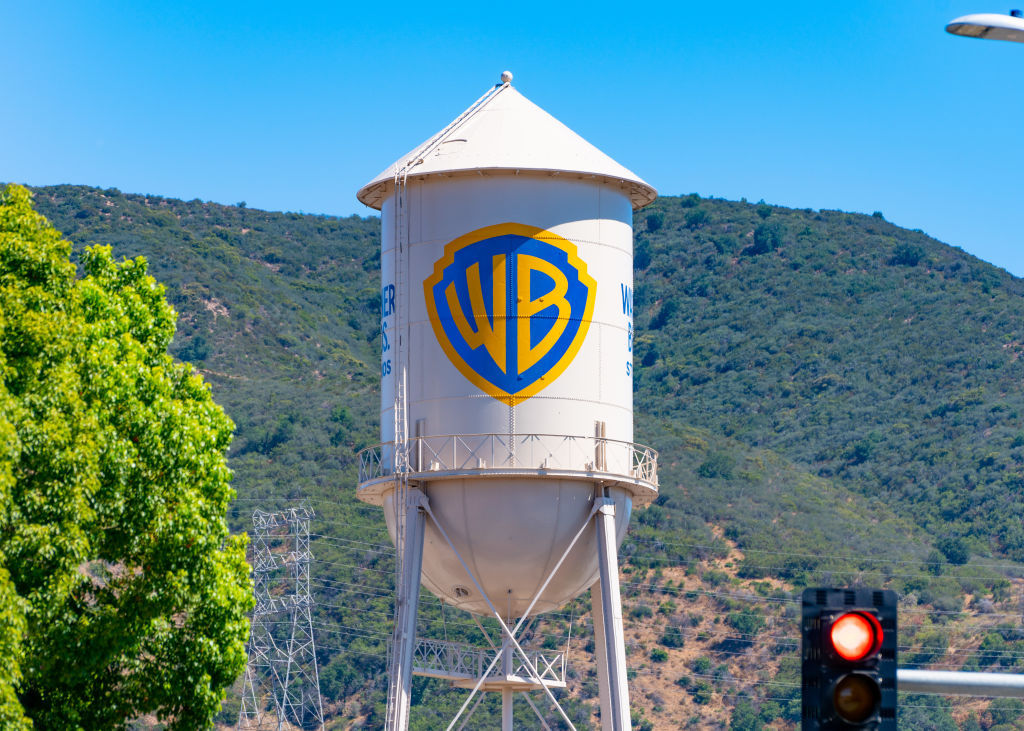Warner Bros. Discovery Has Big Q2 Loss, Blames WarnerMedia
Several strategic decisions cost money, require ‘course corrections,’ executives say

The smarter way to stay on top of broadcasting and cable industry. Sign up below
You are now subscribed
Your newsletter sign-up was successful
In its first financial report as a new company, Warner Bros. Discovery reported a $3.418 billion second-quarter loss and reduced guidance for future earnings, citing decisions and projections made at WarnerMedia that needed to be revised or reversed.
The second-quarter loss included $2 billion in amortization of intangible assets, $1.033 billion in restructuring and other charges and $983 million of transaction and integration expenses involved in combining Discovery with WarnerMedia, which was sold by AT&T to Discovery.
Revenue on a pro forma basis was down 3% to $10.823 billion.
The results fell short of Wall Street expectations and shares fell 11% in after-hours trading.
Also: HBO Max Survives Un-Kneecapped … for Now
“These results are neither indicative of the health of the underlying assets nor of their longer-term trajectory, but rather the fact that we’re starting from a less favorable position compared to our expectations," Warner Bros. Discovery chief financial officer Gunnar Wiedenfels said during the company’s earnings call Thursday.
“In addition to the clearly more challenging macroeconomic backdrop and a changing industry dynamic in the streaming space, we have also now had an opportunity to fully assess legacy WarnerMedia’s financials post-closing,” the CFO said.
The smarter way to stay on top of broadcasting and cable industry. Sign up below
Wiedenfels said that after being able to take a closer look at the numbers it got from WarnerMedia it is lowering the earnings projection for the rest of 2022 by about $2 billion. It is also cutting its outlook for 2023.
Pivots in Strategy
The highest profile move made early in the life of the new company was killing off the CNN Plus subscription business shortly after it was launched.
But launching CNN Plus wasn’t the only strategy the former Discovery execs now running Warner Bros. Discovery found uneconomic.
Among them was reducing sales of content generated by the company to outside buyers in order to grow HBO Max subscribers.
Another was the decision not to sell HBO Max through third parties like Amazon. “We believe there may be opportunities to course correct,” Wiedenfels said.
The new Warner Bros. Discovery management also disagreed with WarnerMedia’s making movies that go directly to consumers via streaming.

“Our conclusion is that expensive direct-to-streaming movies in terms of how people are consuming them on the platform, how often people go there or buy it or buy a service for it and how it gets nourished over time is no comparison to what happens when you launch a film ... in the theaters,” Warner Bros. Discovery CEO David Zaslav said. “We cannot find an economic case for it. We can’t find an economic value for it.”
Zaslav said the company supported releasing films in theaters as the best way to capture their value as they move through various exhibition windows.
Since taking over, new management has scrapped films including Wonder Twins, Batgirl and Scoob!: Holiday Haunt. Zaslav said killing the Batgirl movie was also part of a longer-term strategy to burnish the DC brand.
Wiedenfels also said new management found spending on shows for the former Turner Networks, including kids programming, that “did not have a path to generate sufficient ratings or increment monetization potential.”
New management has moved quickly to address these issues, pulling the plug on CNN Plus, canceling some films and other programming and adopting a more holistic approach to monetizing content, as opposed to funneling all its efforts to adding DTC subscribers.
Wiedenfels said the new, reduced financial outlook was also affected by economic concerns, a more conservative outlook for advertising and changing dynamics in the streaming business.
“Taking all these factors into account, 2022 will clearly be a transition year, and we see an adjusted EBITDA in the range of $9 billion to $9.5 billion,” he said.
"As far as 2023 is concerned, based on the full year impact of our 2022 corrective actions and $2 billion to $3 billion of synergy realization in 2023, we expect adjusted EBITDA to be at least $12 billion,” Wiedenfels said.
Measures already implemented worth $1 billion of run-rate savings, the clear grip on milestones and business cases for at least another $2 billion in flight and eyes on further upside and opportunities.
In the second quarter, Warner Bros. Discovery’s direct-to-consumer segment lost $560 million, compared to $235 million on a pro forma basis a year ago. Revenue rose 4% to $2.225 billion.
During the call, Zaslav outlined plans to combine HBO Max and Discovery Plus into a single product next year. J.B. Perrette, CEO for global streaming and games at Warner Bros. Discovery, said the company expects peak EBITDA losses for the direct-to-consumer segment will occur in 2022 "as we do the heavy lifting around technology, personnel and integration ahead of the planned re-launch starting next summer.”
Perrette said the company is targeting the U.S. streaming business to be profitable in 2024 and the global streaming segment to generate $1 billion in EBITDA by 2025.
“We believe that we can achieve these milestones with a total subscriber base of around 130 million global subs,” he said.
The company finished the second quarter with a combined 92 million HBO Max and Discovery Plus subscribers, an increase of 1.7 million from the first quarter.
Earnings at the networks segment declined 12% on a pro-forma basis, to $2.357 billion. Revenue dipped 1% to $5.742 billion, with ad revenue flat and distribution revenue down 2%.
Linear TV Still Important
After a period when all many companies thought about was getting into the streaming business, Zaslav said he still thought the linear TV business would be important.
“It’s very hard to predict, but we expect [linear] is going to be a very significant cash generator for us and a very good business for us for many, many years to come. We have a great team running it. This is what we do,” he said.
Zaslav said the company has plans to bolster its cable networks by using content from its libraries. He suggested that old documentaries on crime could appear on a network like ID.
“D2C is one platform in a larger portfolio of assets and in a larger lineup of distribution outlets. We are not going to be religious about driving hard to fuel just one platform,” Zaslav said.
Having a strong streaming business as well as a big linear business is a “gift” that makes Warner Bros. Discovery a “balanced company,” he said.
“We effectively have four, five or six cash registers. If there is a cash register where a consumer can come in and either watch or pay for a piece of content, we have every platform in the ecosystem,” Zaslav said. “And in a world where things are changing, and there is a lot of uncertainty and there is a lot of disruption, to me that’s a lot more stable and a lot better than having one cash register.” ■
Jon has been business editor of Broadcasting+Cable since 2010. He focuses on revenue-generating activities, including advertising and distribution, as well as executive intrigue and merger and acquisition activity. Just about any story is fair game, if a dollar sign can make its way into the article. Before B+C, Jon covered the industry for TVWeek, Cable World, Electronic Media, Advertising Age and The New York Post. A native New Yorker, Jon is hiding in plain sight in the suburbs of Chicago.

